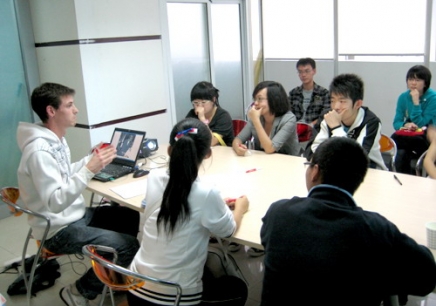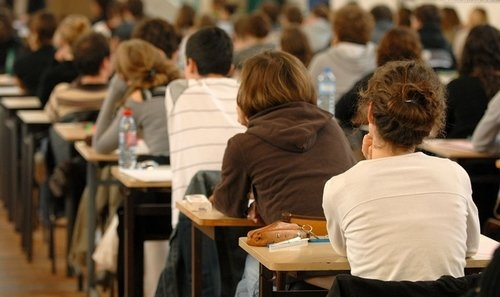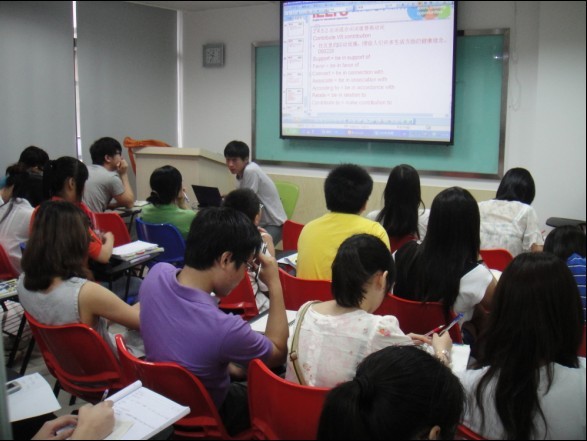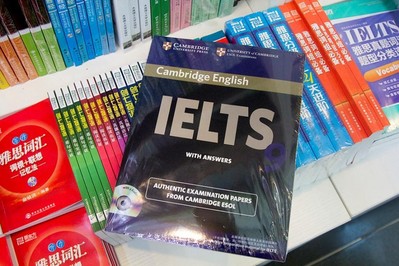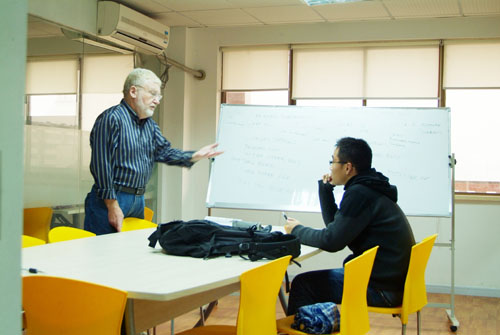 返回
教育头条
返回
教育头条

雅思大作文短文分享 雅思阅读
下面小编跟大家一起了解雅思大作文短文分享,希望对大家的学习有所帮助。
Some people think it is important for all children to learn history in school. Others believe that other subjects are more relevant to children’s lives today. Discuss both views and give your own opinion.
Children’seducation has long been concerned by botheducationalexperts and the public. it is generally accepted that the courses we offer to young students determinethe formation of their knowledge structure as well as skills to a large extent. Some people hold that learning history at an young age brings numerous benefits to shape teenagers historical views and strengthen cultural identity, while others argue that more importance should be given to other subjects that seem more practical in modern society.
Body 1:
People who stress the importance of earlier history education believe that it’s the prime time to cultivate the sense of self-recognition and cultural confidence of children during the adolescent, which would have profound impact on their personality. By offering history class in elementary school or in kindergartens, the youngsters would have a better understanding about who they are, where they come from and what their ancestors believe in and etc. These factors are well known as traditional customs and cultural values, which served as crucial elements in uniting a country and a way to preserve the distinctive aspects of a nation; In addition, the vivid historic events and stories presented in history textbooks can be inspiringto stimulate children’s interest and motivation to learn and look deeper into other related subjects such as art, archaeology and even political science, enabling them to view the modern world from different angles.
Body 2:
When it comes to education, pragmatists normally place more emphasis on the practical use of academic knowledge, who hold that knowledge obtained from classes should be fully applied to social needs. Science subjects, such as mathematics, physics and biology, are more favored by this group. The world we live in today is largely depend on the the power of technological and scientificadvances, which are build upon the theoretical foundation of these subjects; Besides, Courses about life skills and social skills seem more realistic to meet children’s need. For instance, many teenagers nowadays are over-protected or spoiled by their parents or grandparents, which result in poor ability in time and money-management. pragmatists convince that these courses would be more valuable and practical to children’s lives.
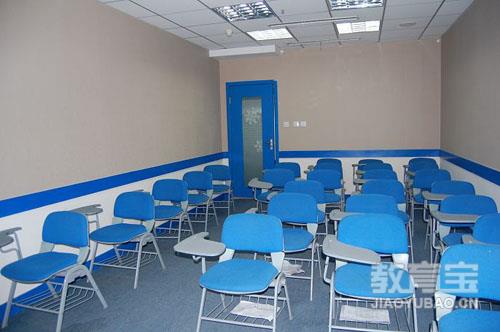
Conclusion:
From my perspective, the interests and ambitions of individual students need to be taken in to account when deciding the courses for teenagers, they ought be given the choice to learn what they are interested in and what they reckon as important to them.
Some people think it is important for all children to learn history in school. Others believe that other subjects are more relevant to children’s lives today. Discuss both views and give your own opinion.
Children’seducation has long been concerned by botheducationalexperts and the public. it is generally accepted that the courses we offer to young students determinethe formation of their knowledge structure as well as skills to a large extent. Some people hold that learning history at an young age brings numerous benefits to shape teenagers historical views and strengthen cultural identity, while others argue that more importance should be given to other subjects that seem more practical in modern society.
Body 1:
People who stress the importance of earlier history education believe that it’s the prime time to cultivate the sense of self-recognition and cultural confidence of children during the adolescent, which would have profound impact on their personality. By offering history class in elementary school or in kindergartens, the youngsters would have a better understanding about who they are, where they come from and what their ancestors believe in and etc. These factors are well known as traditional customs and cultural values, which served as crucial elements in uniting a country and a way to preserve the distinctive aspects of a nation; In addition, the vivid historic events and stories presented in history textbooks can be inspiringto stimulate children’s interest and motivation to learn and look deeper into other related subjects such as art, archaeology and even political science, enabling them to view the modern world from different angles.
Body 2:
When it comes to education, pragmatists normally place more emphasis on the practical use of academic knowledge, who hold that knowledge obtained from classes should be fully applied to social needs. Science subjects, such as mathematics, physics and biology, are more favored by this group. The world we live in today is largely depend on the the power of technological and scientificadvances, which are build upon the theoretical foundation of these subjects; Besides, Courses about life skills and social skills seem more realistic to meet children’s need. For instance, many teenagers nowadays are over-protected or spoiled by their parents or grandparents, which result in poor ability in time and money-management. pragmatists convince that these courses would be more valuable and practical to children’s lives.

Conclusion:
From my perspective, the interests and ambitions of individual students need to be taken in to account when deciding the courses for teenagers, they ought be given the choice to learn what they are interested in and what they reckon as important to them.
以上就是教育宝头条带来的详细介绍,想要查看更多雅思资讯,敬请关注教育宝头条,也可以加我微信18560125702,我会解答你的学习问题。返回教育宝头条
【免责声明】本文仅代表作者本人观点,与教育宝无关。教育宝对文中陈述、观点判断保持中立,不对所包含内容的准确性、可靠性或完整性提供任何保证。请读者仅作参考,特此声明!

